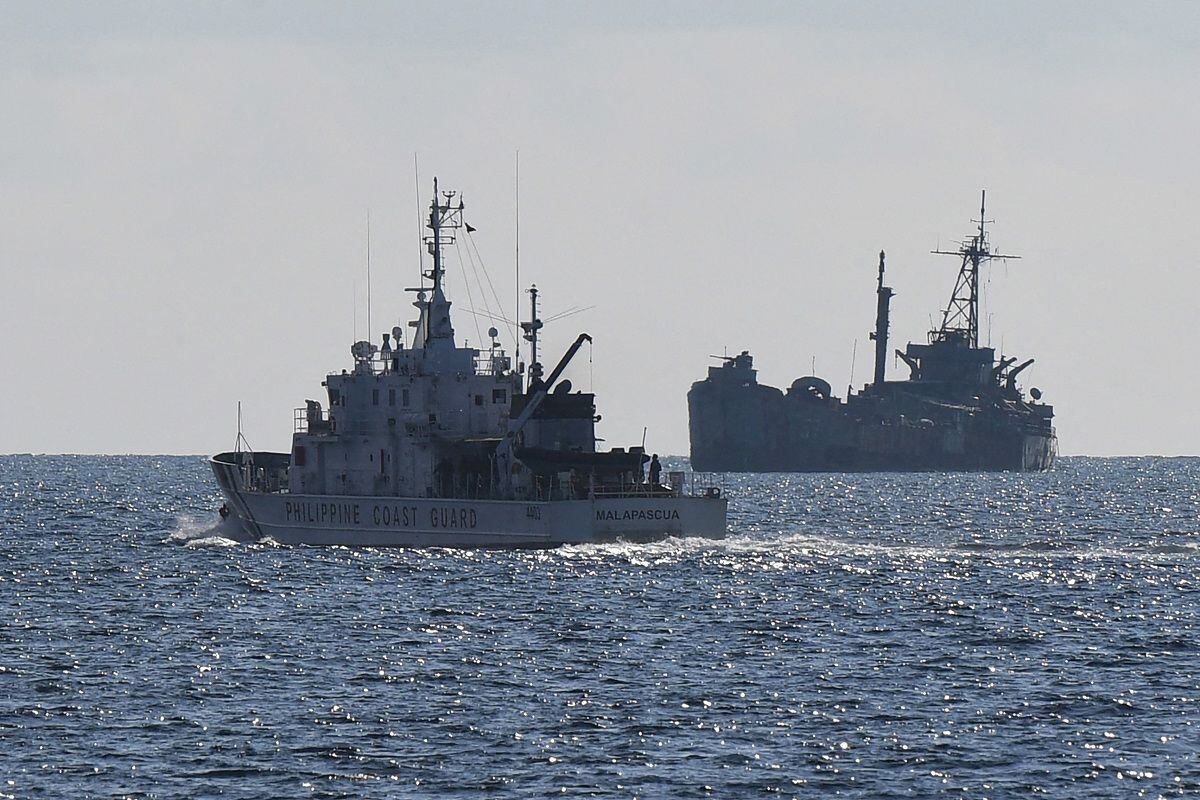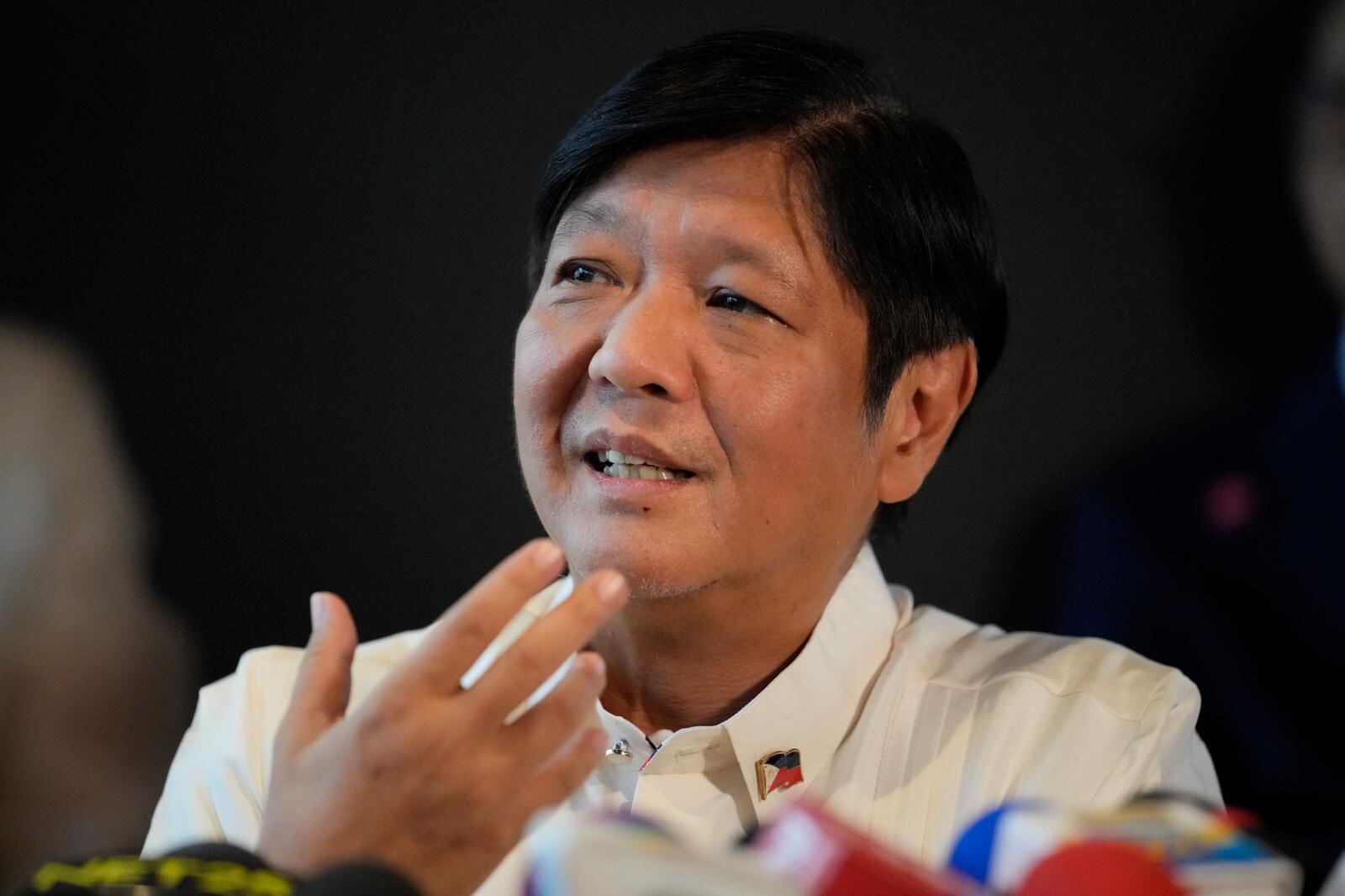As if the ongoing wars and conflicts were not enough, the world closes 2023 with the waters of the South China Sea becoming another source of tension. China It is Philippines They have been accusing each other of provoking a series of clashes in the area for months, but the provocations have become more visible in recent weeks.
TO LOOK: Zhu Ling’s Unsolved Crime: Nearly Blind and Paralyzed by Poisoning
On Monday, the 25th, Beijing accused Manila of repeatedly infringing on Chinese territory in the South China Sea and assured that China “will firmly defend its territorial sovereignty and its maritime rights and interests”, according to the Ministry spokesperson of China’s Foreign Affairs, Mao Ning. The official expressed hope that the Philippines will “make sensible decisions” and return to the right path of resolving differences through dialogue.
Chinese Foreign Minister Wang Yi took a step forward last week, warning that any miscalculation in the dispute with the Philippines would entail a determined response from China.
The Philippines, in turn, alleged that it is China that is causing tensions and carrying out activities that endanger ships and sailors with “maneuvers that sometimes result in collisions at sea”.
Both states have accused each other of provoking maritime clashes, including the alleged Chinese ramming of a ship carrying the Philippine military chief.
On December 10, the Philippines accused the Chinese coast guard of again firing at its ships with water cannons and ramming its resupply ships near Ayungin Atoll (known as Ren’ai in China), located in the Spratly archipelago and controlled through Manila, recalls the Efe agency.
Two other collisions between ships from the two nations occurred in the same area in October. There were also mutual accusations present on that occasion.
The deterioration of bilateral ties coincides with moves by Manila to strengthen military relations with Japan and the United States, its former colonial power and defense ally for seven decades.
At the center of the dispute are several territories in the South China Sea, waters rich in natural resources and crucial to global maritime trade.
Beijing cites historical reasons for claiming sovereignty over most of these waters, parts of which are also claimed by the Philippines, Brunei, Malaysia, Taiwan, Vietnam and Indonesia.
Despite the Chinese complaint, in 2016 the Permanent Court of Arbitration in The Hague invalidated Beijing’s claim and agreed with Manila in its complaint against the Chinese authorities’ claims, a decision that China refused to accept.

“In recent weeks there has been an increase in tension between the Philippines and China, but this is not a new conflict. A few years ago, The Hague ruled in favor of the Philippines, which claimed that China had occupied some islands that the Philippines claimed as its own, and the court ruled in favor of Manila. However, China claims that this decision is not valid and that that territory has historically been China’s; What happens is that Beijing has reinforced its presence on many of these islands, even militarized them”, highlights the internationalist specializing in Asia and professor at the University of San Marcos, Carlos Aquino.
Another trigger for tensions is the rapprochement between the Philippines and the United States. China noted that Manila has adopted a more belligerent stance since Ferdinand Marcos Jr. came to power last year.
The current Philippine ruler has sought to strengthen the historic security ties between his country and the United States, a position that contrasts with the approach to Beijing undertaken by his predecessor, Rodrigo Duterte.

In recent days, the People’s Daily, mouthpiece of the Chinese Communist Party, stated that the Philippines has been counting on the support of the United States to continually provoke China, a behavior that it described as “extremely dangerous” and that, it assured, harms seriously undermine regional peace and stability.
China also expressed anger at Washington this month for sending a military ship into waters near the disputed area.
For Aquino, it is evident that the Philippines has changed its attitude with the new government, which stated that the country will enforce its rights as determined by the international court.
“China says the Philippines is more hostile because it now receives support from the United States. In fact, agreements have been signed so that the United States military forces can use some of the bases that the Philippines has. The situation is complicated and dangerous encounters have already occurred between ships from China and the Philippines”, adds the expert.
Washington has frequently recalled that the 1951 mutual defense treaty it has with Manila also extends to armed attacks on its coast guard in the South China Sea.
In response, Beijing alleged that this treaty is used by the United States to “threaten” China by openly supporting the Philippines’ violations of its country’s sovereignty.
“Tensions will continue because it is clear that China will not give in and the Philippines feels encouraged because it has the support of the United States, what is not known is how far this support will go. Because if it were a conflict between the Philippines and China, obviously China would win, but if the United States intervened, we would be talking about a problem between China and the United States. The situation can get worse if things are not handled well”, explains Aquino.
He adds that something positive is that talks between Washington and Beijing have already been opened, “so in the event of a possible conflict, the first thing that would happen would be high-level negotiations.”
Source: Elcomercio
I am Jack Morton and I work in 24 News Recorder. I mostly cover world news and I have also authored 24 news recorder. I find this work highly interesting and it allows me to keep up with current events happening around the world.

:quality(75)/cloudfront-us-east-1.images.arcpublishing.com/elcomercio/25PUCVD22VBNDC3AZAVS7DUSYE.jpg)

:quality(75)/cloudfront-us-east-1.images.arcpublishing.com/elcomercio/SURQNISTGJCVNONLBAUWMYOD2Y.jpg)
:quality(75)/cloudfront-us-east-1.images.arcpublishing.com/elcomercio/CBPCX6OQ6VDTTDCMCTGZFCXOKE.jpg)
:quality(75)/cloudfront-us-east-1.images.arcpublishing.com/elcomercio/R3BFGYGHNBENTF2OR7JTO7S67U.jpg)

